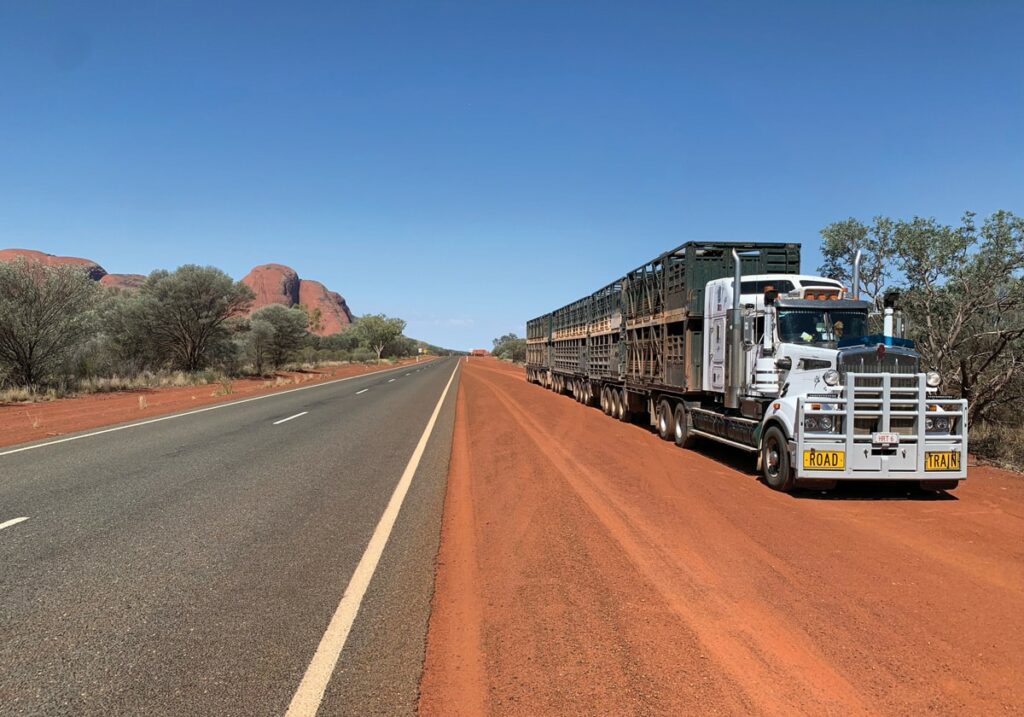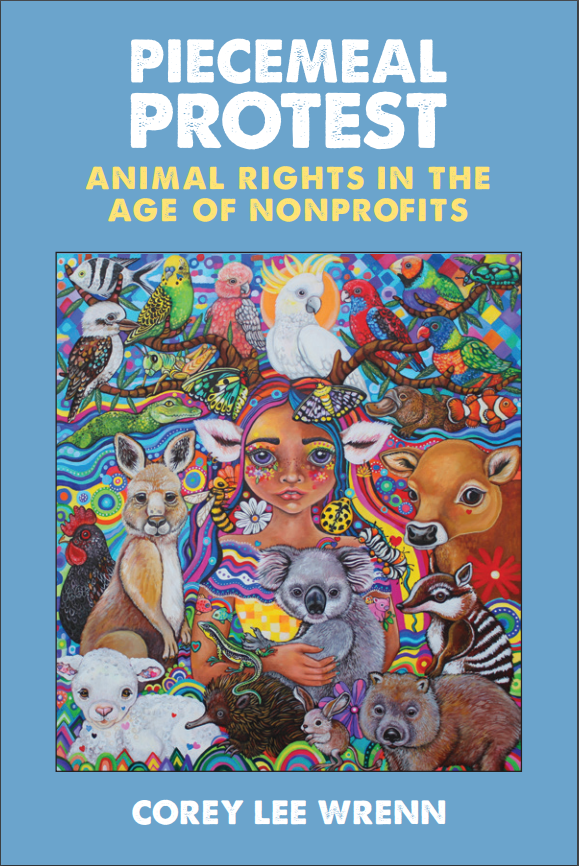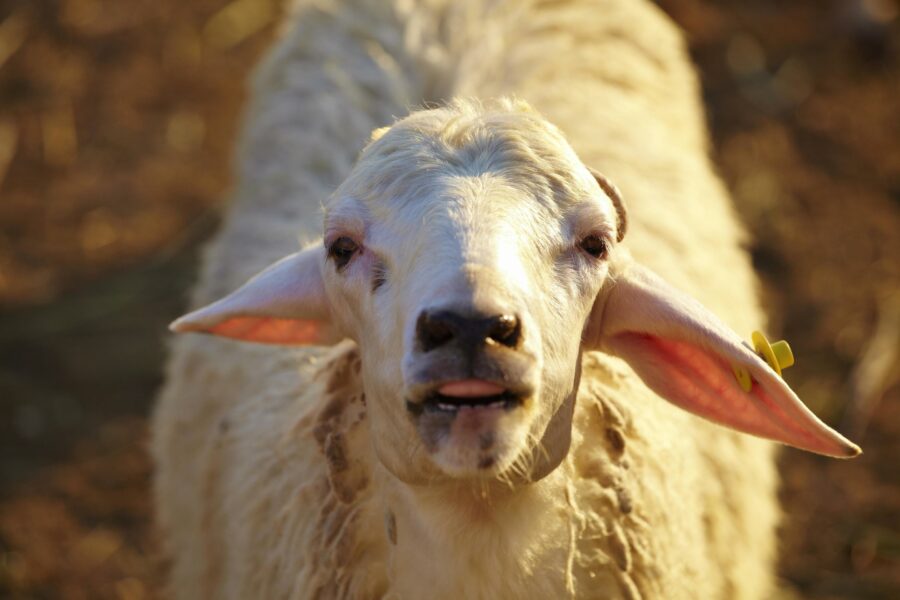As of this writing, Australia has legislated to end the live exportation of sheeps to the Middle East and Asia by 2028. A ban is a big deal, as live export has been a mainstay of “meat,” dairy, and “wool” industries in many countries for well over a century. Shipping “meat” “on the hoof” is common practice because it lowers the cost of production in taking advantage of cheaper, less regulated off-shore slaughter.
Live export is one of the most horrific acts of violence humans have introduced to animal agriculture. I will spare readers the details, but for those who do not know why live export has been heavily resisted by advocates, Australia’s leading welfare organization, Animals Australia, offers more information on its website. This ban, if enacted, will bring considerable relief to the millions who endure it, putting victims out of their misery sooner rather than later.
A Win for Animals or Industry?
But anti-export campaigning is a welfare issue of pro-capitalist design and has nothing to do with rights. It is beyond convoluted that animals are purpose-bred to be forced into a situation of such intense misery that killing them sooner rather than later is considered a kindness.
Furthermore, animal misery is invisibilized in the official discourse. The Australian government is positioning oppressors as the true victims. For instance, supporting the mental health of affected farmers is indicated as one of the leading aims of the implementation plan. I point this out not to dismiss the distress that a major shift in one’s livelihood could cause, but instead to highlight how the suffering of human oppressors in a for-profit industry is centered and not the unimaginable suffering of oppressed sheeps. The Australian government is also issuing millions of dollars in compensation to these farmers to ensure that the industry is not significantly impacted, assuring them that that the transition will only make the industry stronger. The ultimate goal for ending live export is clear: to develop a more streamlined, profitable system that kills more nonhuman people.
A panel report commissioned by the AU government makes this goal explicit:
Our focus has been to establish a profitable and sustainable value chain for Western Australian sheep producers in the absence of live sheep exports by sea. The Panel believes that there is a strong future for the Western Australian sheep industry and its supply chain participants. There are opportunities to grow employment and value adding through increased onshore processing. We believe that with clear announcements, early actions and appropriate support, the adverse impacts of the transition away from live sheep exports by sea can be moderated.

Welfare Campaigns Strengthen Capitalism
This campaign is not about liberation; nonvegan campaigning of this kind only shuffles around suffering. Millions of sheeps will still be transported across great swaths of arid Australian territory to concentrated facilities where they will still be slaughtered in ever quickening kill lines. Cattle, not covered by this policy change, will still be marched–staggering, dehydrated, and frightened–into filthy cargo ships for a last harrowing torture before arriving at an offshore slaughterhouse.
Dinesh Wadiwel has argued that live export persists precisely because it relies on the exploitation of “free” animal labour. Nonhuman Animals must load themselves, struggle to avoid injury and stay alive for weeks at sea, unload themselves, and finally walk themselves to slaughter. Colonial and postcolonial conquest, Westernization, and globalization’s development of free trade, permeable borders, and technological exchange, furthermore, facilitate the exploitability of animals in this way, contributing to the artificial cheapening of off-shore processing. Exploiting animal labor across vast distances had subsequently become the “rational” alternative to killing them on-shore and refrigerating their corpses for transport.
“Improvements” to animal welfare in such systems are rare, but do occur. However, Wadiwel warns that it is most often the case they are intended to maximize exploitation of surplus value from Nonhuman Animals as commodities; they are not intended to respect the intrinsic value of Nonhuman Animals as sentient beings. This seems to be the case with the live export ban. The aforementioned report notes that the practice of live export is highly volatile economically and will eventually become unsustainable for the industry. The ban aims to soften the impact of the inevitable. Pre-emptively transitioning away from live export is thus a strategic means to protect the industry, not sheeps.
If welfare improvements are designed to bolster violence against animals, any support offered from anti-speciesists is likely to humane-wash, not challenge, animal agriculture. Fellow vegan sociologist Nick Pendergrast (2017) has noted in his research on a similar, but overturned live export ban in Australia that the welfare framework predominates in advocacy discourse, obscuring possibilities for a broader discussion about oppression, exploitation, and liberation.
Indeed, activists too often align with speciesist frameworks in hopes of achieving some resonance. I recognize that keying the message is to some extent necessary, but I also recognize that it is on activists to change the frame within which these messages are interpreted. The master frame in the Western public sphere is capitalistic: consume well, consume pleasurably, and consume often. When advocates’ shoehorn welfare claims into the master frame of capitalist consumption, Nonhuman Animals are rendered commodities and it will be producer and consumer interests that are prioritized. Anti-speciesists will better serve Nonhuman Animals with appeals to social justice instead of appeals to higher welfare production. Social justice frames offer an alternative, arguably subversive means of interpreting social relations: Nonhuman Animals are seen as persons not products.

Animal Nationalism
Anti-live export campaigning, unfortunately, has all but eschewed social justice claimsmaking, aligning instead with the competitive, individualistic ideology of Western capitalism with an appeal to nationalism. There is a history of focusing on the “barbarity” of foreign countries receiving Australian animals, fanning anti-Muslim attitudes and racism in order to improve the campaign’s resonance (Dalziell and Wadiwel 2017). This is not only problematic for so-called “barbarian” humans who are subject to structural discrimination and hate crimes, but it also ignores the extremely barbaric treatment of sheeps and other animals as everyday practice in Australian farming. As Sheep Advocate Australia explained to me, Australia itself is “the biggest target and an Australian leader in killing culture and patriotic worship.”
Anti-speciesists must challenge the hegemony of capitalism and the normalcy of anthropocentrism with system-oriented vegan campaigning. We cannot simply ask the government-industry nexus to treat Nonhuman Animals nicer. Nice means nothing to capitalism unless it can be monetized. This is a flimsy foundation for ethics, and, as Wadiwel argues, often counterproductive in its overall effect. Anti-speciesists must fight for a system in which capitalism is no longer the arbiter of human morality. Yes, let us get sheeps off the death ships, but let us also start the conversation about getting them out of the slaughterhouse and acknowledging them as persons, not property. This will mean more than challenging anthropocentrism, it will also entail a radical revising of our current economic and political system in order to change the frame through which social relations are presented and interpreted.
Works Cited
Dalziell, J. and D. Wadiwel. 2017. “Live Exports, Animal Advocacy, Race and ‘Animal Nationalism’.” Pp. 73-89, in Meat Culture, A. Potts (Ed.). Leinden: Brill.
Pendergrast, N. 2015. “Live Animal Export, Humane Slaughter and Media Hegemony.” Animal Studies Journal 4 (1): 99-125.
Wadiwel, D. 2024. Animals and Capital. Edinburgh: Edinburgh University Press.
 Readers can learn more about the social movement politics of Nonhuman Animal rights and veganism in my 2019 publication, Piecemeal Protest: Animal Rights in the Age of Nonprofits. The beautiful cover art for this text was created by vegan artist Lynda Bell and prints are available on her website, artbylyndabell.com.
Readers can learn more about the social movement politics of Nonhuman Animal rights and veganism in my 2019 publication, Piecemeal Protest: Animal Rights in the Age of Nonprofits. The beautiful cover art for this text was created by vegan artist Lynda Bell and prints are available on her website, artbylyndabell.com.
Receive research updates straight to your inbox by subscribing to my newsletter.
